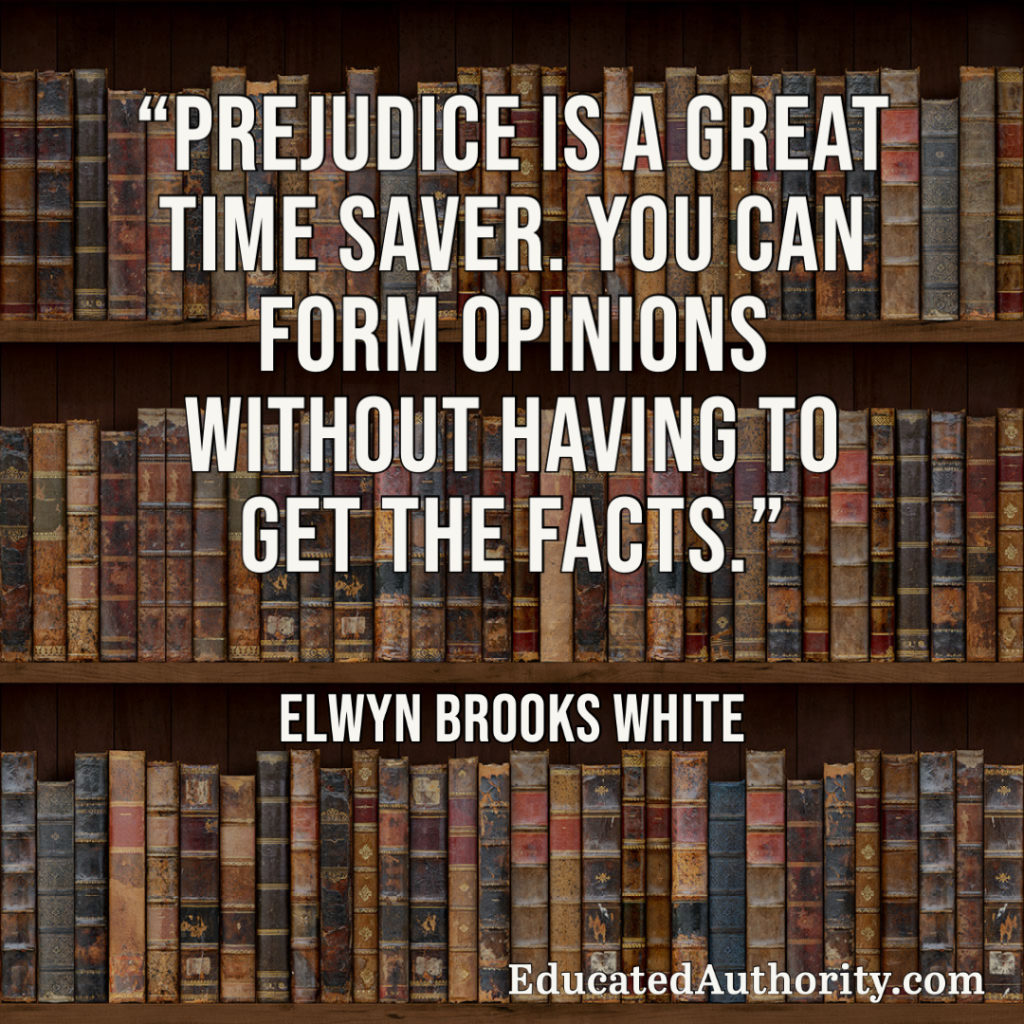“Prejudice is a great time saver. You can form opinions without having to get the facts.”
—Elwyn Brooks White
Okay, wait. Hear me out on this. It’s not as bad as you think…
Do you know what Authority followers (read: pretty much everyone, everywhere, always) want more than anything? Easy decisions. A world that makes sense, where all the facts fit together nicely and are wrapped up with a pretty red bow.
It’s your job to give it to them.
People don’t seek out an Authority in order to have things make less sense, or to be more complicated. People want you to give them the rules, the boundaries. They want you to tell them the way things work.
That’s why an Authority (or even a Thought Leader) lives in a world of black-and-white facts, not gray “it depends” answers.
In the way I’m using it, prejudice means “a preconceived opinion not based on actual experience.” At least not the experience of your audience. Your experience.
Can you provide that for them?
You need three things to deliver this experience to your audience:
You need expertise, which means that you need to be at least a little smarter (at least about this one thing).
You need your own lexicon, which will be the words and terms you use that are fairly unique to you, so that you can “own” them in the minds of your audience (among other reasons).
Finally, you’ll need your own manifesto, which are the opinions and values you stand for. You own version of good versus evil, right and wrong, etc.
You’ll also need a few other assets (I call them “Authority Assets”), like your mission story, which explains why you do what you do and why you help your audience.
Your audience wants the convenience of you doing their thinking for them, and then the reward you give them for being a follower.
